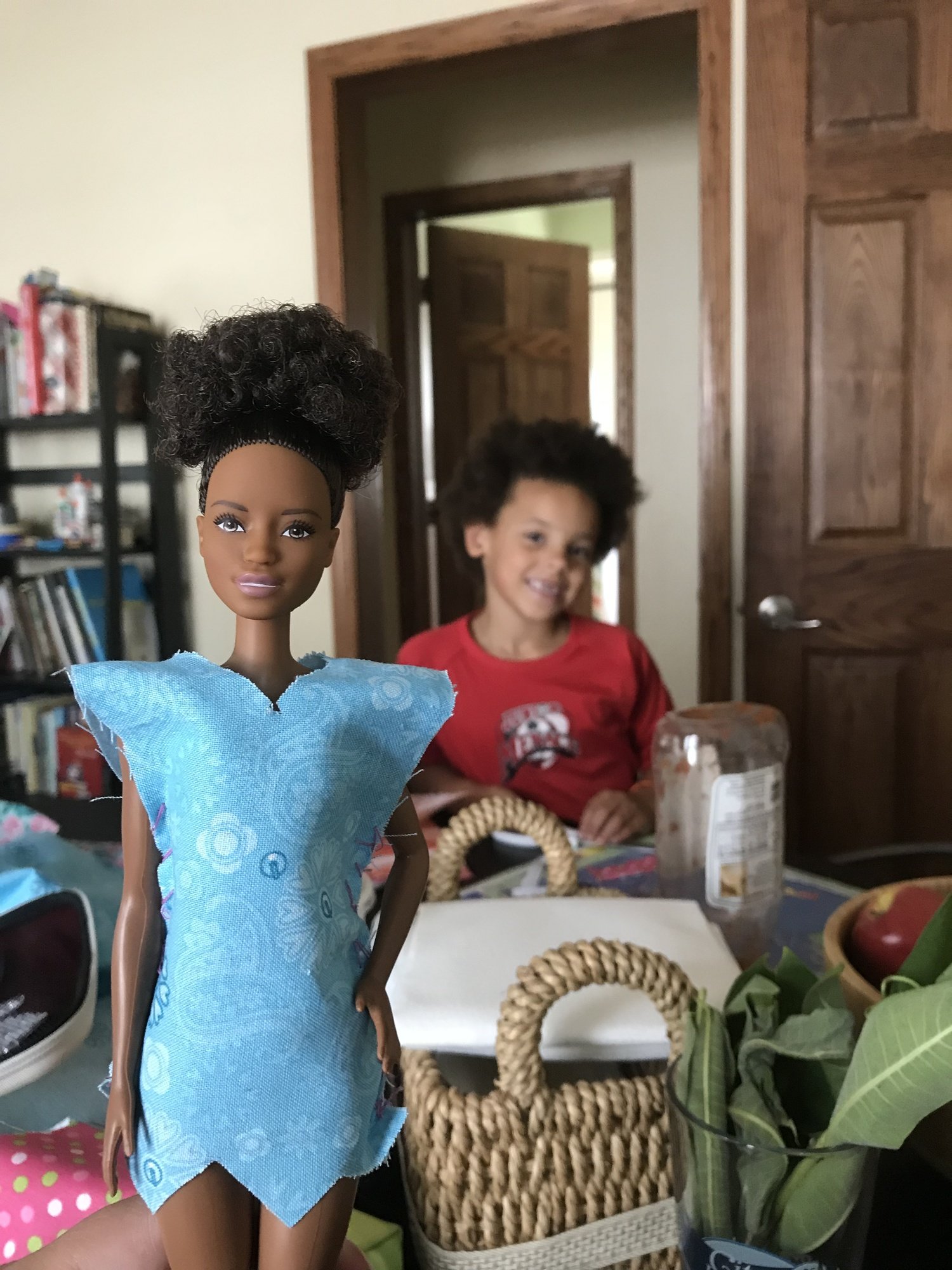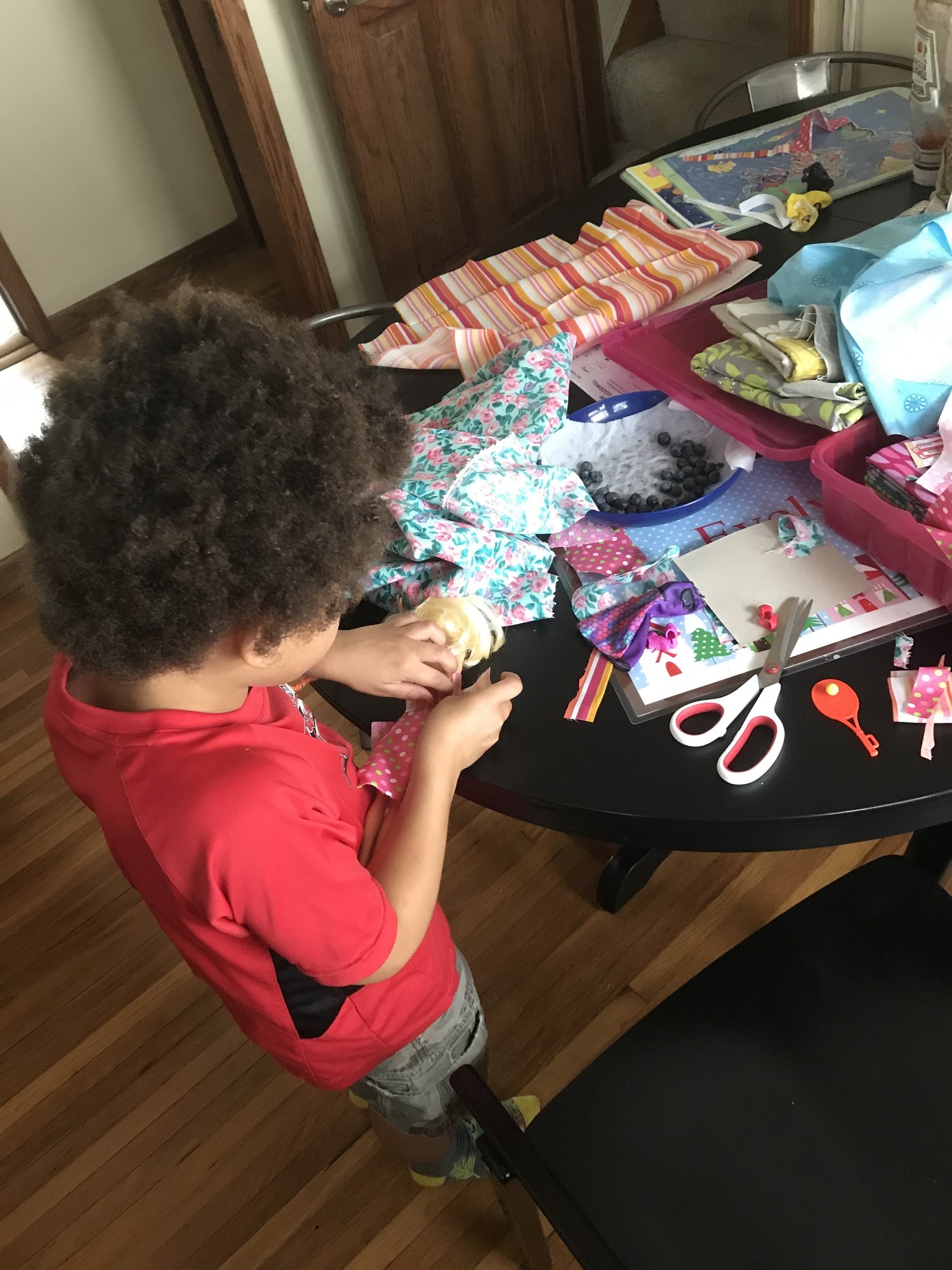
A few weeks ago, a small miracle happened. My 6-year-old daughter, who has never played with a doll in her life, asked for Barbie. I’ve never said yes to a toy so fast. As someone who loved playing with Barbies as a kid, I felt like my parenting dreams were finally coming true. We brought home two dolls (soon to be named Serena Williams Jr. and Corey) and quickly set up shop making them dresses out of sewing scraps.
But then I mentioned the Barbie purchase to a friend who wrinkled her nose and mentioned that she’d always thought it was cool that my daughter rejected dolls in favor of Legos and other building sets. It just seemed cool, she said, that my daughter was always so into toys that promote STEM.
Ugh.
For those who might have missed this particular parental guilt trip, STEM stands for science, technology, engineering, and math

These are all fields where women have been historically unrepresented, and there is a lot of time, money, and resources going into changing this by encouraging young girls to think about STEM majors and careers in the future. As a feminist and an educator, I can totally see the value in this. Girls should know that they can do any career they want and that boys aren’t somehow magically better at math than girls.
But as a mom and a former history major, I’m also starting to think STEM shaming is becoming a thing and it kind of sucks.
The truth is that, for the segment of moms I run with, it’s considered kind of cool if your daughter isn’t into being a princess or into stereotypical girl things. There is a certain amount of validation that can come from having a daughter who likes Star Wars more the Disney princesses.
It’s interesting to me that if I post a picture on social media of my daughter and I playing with Legos, it gets tons of likes, far more than the picture I posted of us making Barbie clothes. And yet both forms of play are about being creative, right? Both forms of play are about using our imaginations, but only one is typically viewed as a “girly” activity. Although I think the validation of non-girly choices comes from a well-meaning and progressive place, I also worry that it can end up shaming girls who like, well, “girly” things.
My concern with the emphasis on STEM is the message that it sends to girls who might not fit that mold.

I want my daughter to know that whatever toy she loves or however brave she wants to be or if she's a tomboy or not — there is no one perfect way to be a girl.
One of the reasons I loved Barbies when I was a kid was because it was by playing with dolls that I first became a storyteller. My dolls had elaborate backstories and soap opera-worthy personal lives. I fell in love with the power of story, something that has served me well ever since. I don’t feel like my life and career are somehow less than because I didn’t do a STEM field and because I loved toys that were stereotypically labeled as girl toys.
My daughter is only 6, and it is way too early to know what her academic or career path will be.
She’s smart and curious and loves to dress her Barbies in homemade clothes and to build Batman Lego sets. I just want her to know that there is no wrong way to play, STEM shamers be damned. Now, please excuse me. I need to finish hemming an evening gown for a very glamorous doll.




